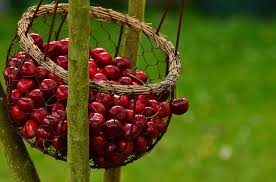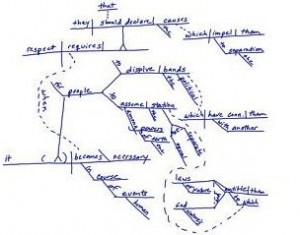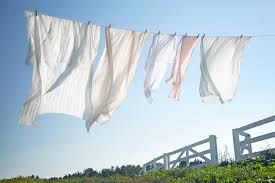 Once again, Monday slipped by me before I could post a poem, here are two worth waiting for. Everyone thinks of Philip Levine as the poetic champion of the blue-collar worker, but I vote for Dorianne Laux.
Once again, Monday slipped by me before I could post a poem, here are two worth waiting for. Everyone thinks of Philip Levine as the poetic champion of the blue-collar worker, but I vote for Dorianne Laux.
The Shipfitter’s Wife
I loved him most
when he came home from work,
his fingers still curled from fitting pipe,
his denim shirt ringed with sweat
and smelling of salt, the drying weeds
of the ocean. I’d go to where he sat
on the edge of the bed, his forehead
anointed with grease, his cracked hands
jammed between his thighs, and unlace
the steel-toed boots, stroke his ankles
and calves, the pads and bones of his feet.
Then I’d open his clothes and take
the whole day inside me — the ship’s
gray sides, the miles of copper pipe,
the voice of the foreman clanging
off the hull’s silver ribs. Spark of lead
kissing metal. The clamp, the winch,
the white fire of the torch, the whistle,
and the long drive home.
Oh, the Water
You are the hero of this poem,
the one who leans into the night
and shoulders the stars, smoking
a cigarette you’ve sworn is your last
before reeling the children into bed.
Or you’re the last worker on the line,
lifting labeled crates onto the dock,
brown arms bare to the elbow,
your shirt smelling of seaweed and soap.
You’re the oldest daughter
of an exhausted mother, an inconsolable
father, sister to the stones thrown down
on your path. You’re the brother
who warms his own brother’s bottle,
whose arm falls asleep along the rail of his crib. Continue reading “Monday on Tuesday” →
 While there are many wonderful blackberry poems, I know only three poems about cherries, all from previous centuries–one by Thomas Campion, one by Robert Herrick, and this one, by D. H. Lawrence, that Larry mentioned as we were eating the exceptionally sweet cherries of this summer:
While there are many wonderful blackberry poems, I know only three poems about cherries, all from previous centuries–one by Thomas Campion, one by Robert Herrick, and this one, by D. H. Lawrence, that Larry mentioned as we were eating the exceptionally sweet cherries of this summer:
 At a friend’s suggestion, I have been reading Primo Levi’s The Periodic Table. I rather skimmed through the early chapters about his relatives, but once I got to the chapter on Hydrogen, I was hooked.
At a friend’s suggestion, I have been reading Primo Levi’s The Periodic Table. I rather skimmed through the early chapters about his relatives, but once I got to the chapter on Hydrogen, I was hooked. Once again, Monday slipped by me before I could post a poem, here are two worth waiting for. Everyone thinks of Philip Levine as the poetic champion of the blue-collar worker, but I vote for Dorianne Laux.
Once again, Monday slipped by me before I could post a poem, here are two worth waiting for. Everyone thinks of Philip Levine as the poetic champion of the blue-collar worker, but I vote for Dorianne Laux. I always feel the turn of the year after the summer solstice. Even though it is still bright summer, each day is a little shorter now, the early spring crops are over, and I get an acute sense of the brevity of summer, the impending autumn. I think this delicate poem by Jane Kenyon captures that:
I always feel the turn of the year after the summer solstice. Even though it is still bright summer, each day is a little shorter now, the early spring crops are over, and I get an acute sense of the brevity of summer, the impending autumn. I think this delicate poem by Jane Kenyon captures that: